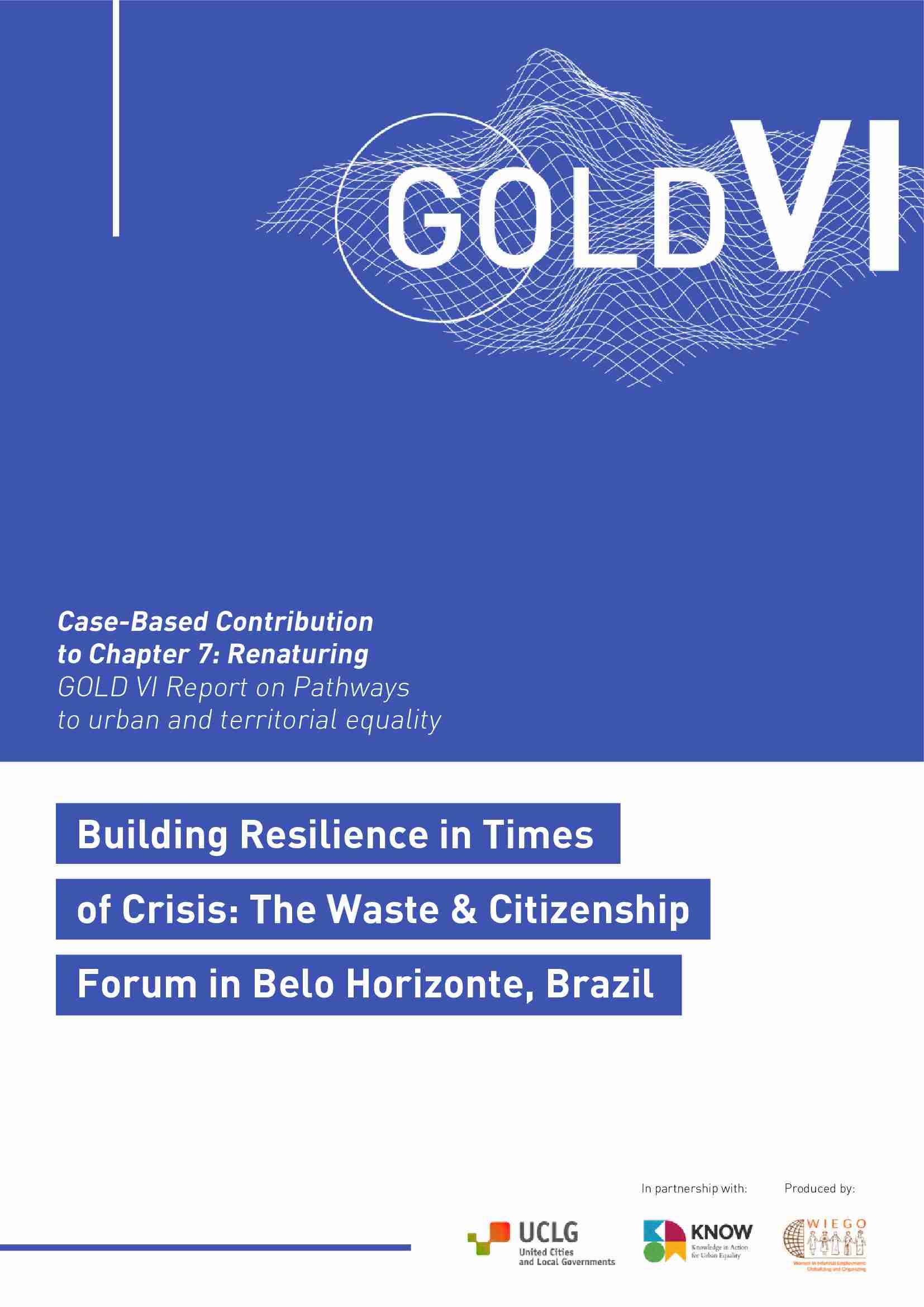Building Resilience in Times of Crisis: The Waste & Citizenship Forum in Belo Horizonte, Brazil
There is growing interest in the potential of solid waste management (SWM) in contributing to greening urban infrastructure and systems. There are also several debates pointing to the potential that this may have on ‘renaturing cities’, while simultaneously supporting workers’ livelihoods through the design of pro-poor SW systems. This article draws from an understanding of SWM as a socio-technical system that connects users to solid waste systems and is capable of addressing interrelated aspects and dynamics, including its technical dimensions, governance structures, environmental impacts, and social inclusion elements. It then reviews the experience of Belo Horizonte’s (Brazil) Integrated and Sustainable Solid Waste Management approach to highlight the lessons of building synergies among key stakeholders through the integration of informal waste pickers in the city’s solid waste management and establishment of a multi-stakeholder participatory forum - the Municipal Waste Citizenship Forum. This historical overview is the basis for reviewing the actions taken by all actors at the onset of the COVID-19 pandemic. Lastly, the case study provides insights on the overall challenges and tangible possibilities for renaturing cities, particularly in the ways it can impede or promote infrastructural investments, more decent work conditions and an expansion of selective waste management in the city.
View list of all: Project Reports

